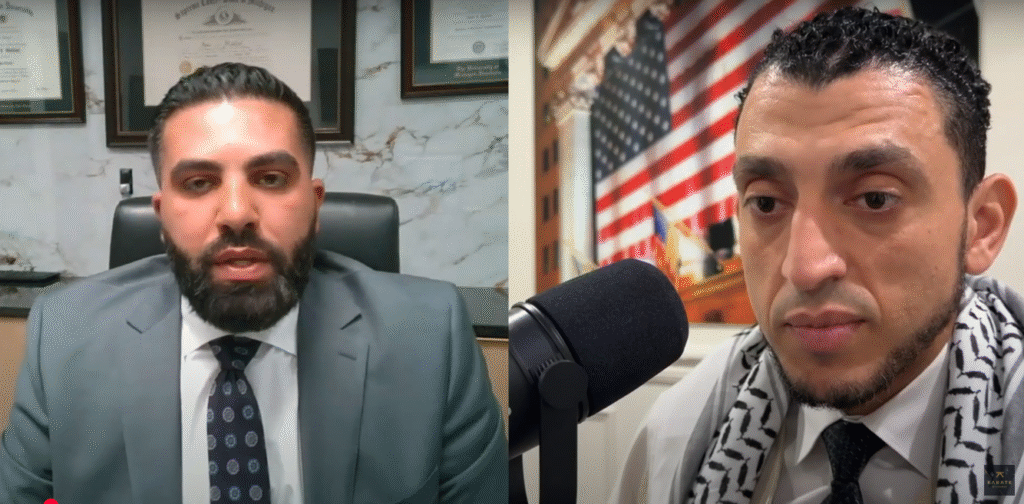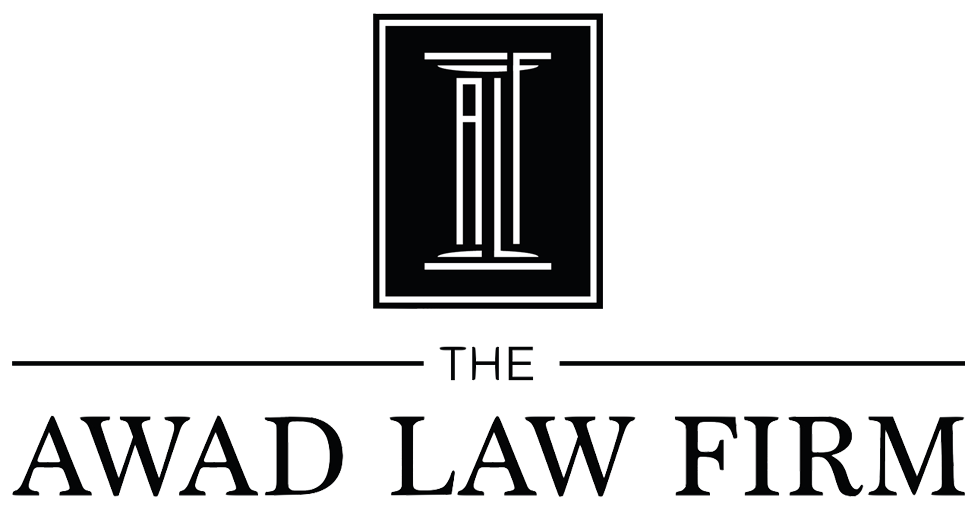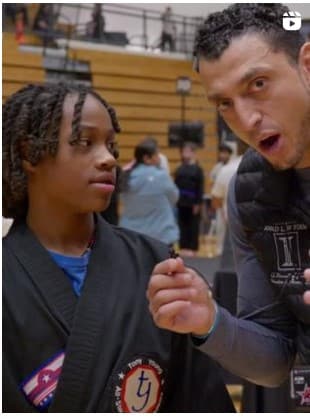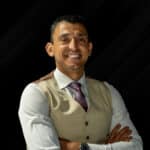What happens when your identity and your work become inseparable — when your name, your purpose, and your fight are all bound up in one word: justice?
That’s the story of my friend and colleague, Amir Makled — a civil rights and personal injury attorney in Dearborn, Michigan. Amir isn’t just practicing law. He’s living his values, protecting his community, and refusing to be silenced.
And recently, that commitment was tested in a way that no American — no attorney — should ever experience.

“I’m a Father First”
When I asked Amir how he defines himself, his answer stopped me.
“I’m a father first. A husband, an attorney, and a Muslim. In that order.”
Let that sink in.
This is a man whose professional reputation spans over a decade — someone who’s argued civil rights cases and helped build bridges across legal, racial, and religious divides — but he centers family first. And that’s not just a line. It’s reflected in how he shows up for his clients, especially in a city like Dearborn, where over 70% of the population is Arab or Muslim.
As Amir told me:
“My clientele base is Arab, Muslim, or from a marginalized population. I have the honor of serving them, and I love it.”
This isn’t just representation. It’s responsibility.

Amir’s legal foundation was shaped by none other than Cyril Hall, a veteran civil rights attorney in Detroit.
Now, I want you to picture this: a Black civil rights lawyer opens a satellite office in Dearborn — not an easy market to break into. But he brings Amir in, early, as a partner. Why? Because of trust. Because of shared values. Because he saw something in Amir.
“Cyril became more than a mentor,” Amir told me. “He’s a father figure. I’m indebted to him.”
That kind of guidance doesn’t just shape a career. It sharpens your mission.
Then Amir told me what happened when he returned from a family vacation in the Dominican Republic.
If you’ve ever been pulled aside by Customs and Border Protection, you know how unsettling it can be. But Amir’s story goes far beyond inconvenience.
“They flagged me for additional screening. Then I heard the agent ask: ‘Are the TTRT agents available?’”
TTRT — that’s the Tactical Terrorism Response Team. A term Amir had to Google on the spot.
Imagine that. A well-reputed practicing attorney, born and raised in this country, returning from a family trip — and he’s suddenly under suspicion.
And it didn’t end there.
“We Want Your Phone”
They took Amir into a separate interview room. No wife. No kids. Just him and a federal agent.
“We know you’re an attorney,” they said.
“And we know you’re handling some high-profile cases.”
Let me pause here. Why lead with that? Why bring up his cases? Unless this was about something bigger.
And it was.
One of Amir’s clients, Samantha Lewis — a University of Michigan protester — is facing felony charges for peacefully demonstrating against the war in Gaza. Amir has been vocal about the case, and so has the media.
That’s what this was about. This was about silencing dissent.
Then the agent slid a pamphlet across the table. It outlined a federal statute saying that CBP can seize your electronic devices at the border — no warrant, no probable cause, no suspicion required.
Then came the words:
“We want your phone.”
What Do You Do When You’re Targeted?
Now, if you’re an attorney — or you care about your rights — I want you to listen closely.
Amir responded exactly how we’re trained to respond.
“I said no. I told them my phone contains over ten years of privileged attorney-client communication. Emails. Notes. Files. All protected.”
They pushed back. “Photos aren’t privileged.”
He stood firm. “It’s all privileged as far as I’m concerned.”
The agent left to get a supervisor. That’s actually required by CBP policy when someone asserts attorney-client privilege. Good — Amir knew that.
Then they came back with a notepad and said, “Just write down which parts are privileged.”
Let me ask you something: How do you write down ten years of privileged data? You don’t. And Amir didn’t.
“I told them no. That’s not reasonable. That’s not legal. I’m not going to help you violate my clients’ rights.”
At that point, the agent tried a different tactic:
“Just show us your contact list.”
Now let me be honest with you — this is where the decision got tough. Amir knew they had the power to take his phone, maybe hold it for weeks. He couldn’t afford that. None of us could.
So he gave limited consent. In writing.
“You may view my contact list. Nothing else.”
He signed it. And they took the phone out of view.
Minutes later, they returned with names. Five or six people.
“They didn’t dump the phone. They were looking for specific individuals. They knew who they were after.”
Amir’s response?
“Everyone in that phone is either a client, a friend, or family. That’s all you’re getting.”
Two hours had passed. His family was already home. The airport was empty. Customs had to raise the gate just to let him out.
And as he told me:
“This wasn’t about national security. This was about intimidation. It was a message: ‘We see you. We know what you’re doing. Be careful.’”
You Can’t Silence the Truth
Let’s be clear: Amir’s story isn’t just about one attorney. It’s about what’s happening to lawyers, students, and activists across the country — especially those who speak out about Palestine.
People are being flagged, detained, even deported — not for crimes, but for opinions. Political speech. Protected speech.
And the message seems to be: “We know you’re not a criminal, but higher-ups don’t want you here.”
I asked Amir what advice he’d give to other attorneys:
“Use a different phone when you travel. Don’t store sensitive data. Know your rights — and be ready to assert them. Calmly. Clearly. Legally.”
Because that’s what he did. And that’s what we all need to do.
Final Thoughts
If you’re reading this and you’ve ever felt powerless in the face of authority, I want you to remember something Amir said to me:
“Most people don’t control the pace or the tone when law enforcement steps in. But you should. It shifts everything.”
I couldn’t agree more.
You have rights. You have power. And when you stand in that — even in the most intimidating situations — you protect more than yourself.
You protect all of us.
Stay grounded. Stay informed. Stay unshaken.



